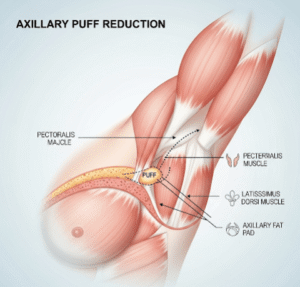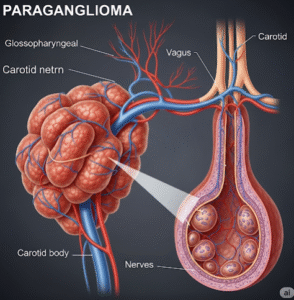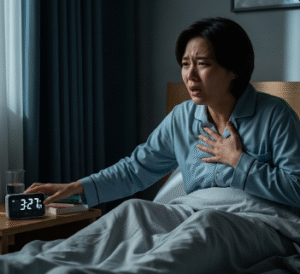What is Euthanasia and Assisted Suicide?
Euthanasia refers to the intentional act of ending a person’s life to relieve suffering, typically in cases of terminal illness or unbearable pain.
Assisted suicide involves providing a person with the means or information to end their own life, often under medical supervision.
💡 Types of euthanasia include:
✔️ Voluntary euthanasia – Conducted with patient consent
✔️ Non-voluntary euthanasia – Patient unable to consent; decision made by family or legal proxy
✔️ Active euthanasia – Direct action, e.g., lethal injection
✔️ Passive euthanasia – Withdrawal of life-sustaining treatment
Key Distinction:
➡️ Euthanasia – Performed by a physician or authorized person
➡️ Assisted suicide – Patient self-administers lethal medication with guidance
In Korea, euthanasia and assisted suicide are legally prohibited, though life-sustaining treatment withdrawal and palliative care are regulated under the “Act on Hospice and Palliative Care and Decisions on Life-Sustaining Treatment.”
Why It’s Done / Importance
These practices are considered in cases of terminal illness, unbearable pain, or irreversible decline.
✔️ Alleviate physical suffering – Pain, shortness of breath, or severe neurological symptoms
✔️ Respect patient autonomy – Allow individuals to control the timing and manner of death
✔️ Reduce emotional and psychological distress – Anxiety, depression, or hopelessness in terminal patients
✔️ Support families – Avoid prolonged suffering and reduce caregiver burden
Clinical and Ethical Considerations:
➡️ Quality of life prioritization – Focus on comfort rather than mere prolongation of life
➡️ Ethical debate – Balancing autonomy with societal and medical ethics
➡️ Legal compliance – In Korea, only palliative withdrawal of life-sustaining treatment is lawful
Alternatives / Palliative Options
Since euthanasia and assisted suicide are illegal in Korea, alternatives focus on palliative and supportive care:
⭐ Palliative care – Symptom management, including pain, nausea, breathlessness, and agitation
⭐ Hospice care – Provides comfort, emotional, and spiritual support in the final stages of life
⭐ Advanced pain management – Opioids, nerve blocks, and multimodal analgesia
⭐ Psychological support – Counseling, meditation, or cognitive behavioral therapy
⭐ Spiritual and family support – Chaplaincy services, meditation, and family counseling
👉 Key Point: These alternatives aim to ensure dignity, minimize suffering, and provide holistic support without violating legal or ethical boundaries.
Preparation / Legal & Ethical Considerations
Preparation for end-of-life decision-making in Korea involves legal, ethical, and emotional steps:
🔹 Advance directives – Patients can document their preferences regarding life-sustaining treatment
🔹 DNACPR orders – Decisions on resuscitation to respect patient wishes
🔹 Family discussions – Open communication about prognosis, wishes, and care goals
🔹 Ethical counseling – Ethics committees in hospitals guide complex cases
🔹 Medical assessment – Confirm terminal diagnosis or irreversible condition
⭐ Cultural considerations – In Korean society, family involvement is central
⭐ Legal framework – “Act on Hospice and Palliative Care and Decisions on Life-Sustaining Treatment” allows withholding or withdrawing futile treatment
How It’s Done
While euthanasia and assisted suicide are illegal, legal end-of-life care practices in Korea focus on withdrawal of life-sustaining treatment and comfort measures:
- Life-Sustaining Treatment Withdrawal
✔️ Discontinuing ventilators, dialysis, or artificial nutrition for terminal patients
✔️ Requires documentation and approval according to the law - Palliative Sedation
🔹 Administering sedatives to relieve intractable pain or distress at the end of life
🔹 Patient remains monitored and comforted - Holistic Support Measures
➡️ Pain management through opioids or adjuvant therapies
➡️ Emotional and spiritual support for patient and family
➡️ Family presence and culturally appropriate rituals
Highlights:
✔️ Legal and ethically compliant
✔️ Focused on relief of suffering without hastening death
✔️ Multidisciplinary care – Physicians, nurses, social workers, and chaplains
Recovery / Follow-up / Support
While recovery is not the goal, support for patients and families continues:
✔️ Comfort and symptom relief – Ensures dignity in the final stages
✔️ Psychological support – Counseling to address anxiety, depression, or grief
✔️ Family bereavement care – Support groups, counseling, and follow-up visits
✔️ Legal closure – Completion of documentation for life-sustaining treatment decisions
⭐ Ongoing support ensures patients experience dignity and families cope effectively.
Complications / Risks / Controversies
Even in legal palliative care, there are ethical and practical challenges:
⚠️ Ethical dilemmas – Balancing pain relief with risk of hastening death
⚠️ Family disagreements – Conflicting views on withholding treatment
⚠️ Psychological distress – Anxiety, depression, or existential distress in patient and family
⚠️ Legal compliance issues – Misinterpretation of withdrawal procedures could result in legal scrutiny
⚠️ Cultural tension – Korean societal norms value family consensus and filial duty
➡️ Hospitals in Korea have ethics committees and multidisciplinary teams to address complications and ensure legal and ethical care.
Treatment Options / End-of-Life Care in Korea
Korea provides a comprehensive, legal, and ethical end-of-life care framework:
🏥 Hospice Care Facilities – Comfortable inpatient or home-based care focusing on symptom relief
🏥 Hospital Palliative Care Units – Specialized for terminal illnesses and symptom management
🏥 Home-Based End-of-Life Care – Nurses and caregivers provide monitoring, medication, and support at home
🏥 Counseling and Bereavement Services – Emotional support for patients and families
🏥 Legal Assistance – Guidance on advance directives, DNACPR, and withdrawal of futile life-sustaining treatment
Why Korea is a Preferred Destination:
✔️ Legally regulated and safe end-of-life care – Ensures patient dignity and ethical compliance
✔️ Experienced multidisciplinary teams – Physicians, nurses, social workers, and counselors
✔️ Accessible hospice and home care services – Nationwide coverage
✔️ Patient and family-centered – Respect for wishes and cultural preferences
Approximate Costs in Korea:
🔹 Hospice Facility Care → $100 – $300 per day
🔹 Home-Based Palliative Care → $50 – $150 per day
🔹 Counseling and Psychological Support → $30 – $80 per session
🔹 Hospital Palliative Care Units → $150 – $400 per day
Conclusion
Euthanasia and assisted suicide are illegal in Korea, but patients with terminal illness or severe suffering receive comprehensive, ethical, and legally compliant end-of-life care.
End-of-life care ensures:
✔️ Relief from pain and suffering
✔️ Support for emotional, psychological, and spiritual needs
✔️ Patient and family-centered decision-making
✔️ Legal compliance and ethical guidance
In Korea, patients benefit from:
✔️ Advanced hospice and palliative care services
✔️ Multidisciplinary teams providing holistic support
✔️ Legal frameworks supporting patient autonomy
✔️ Accessible home and facility-based care
👉 Key Message: While euthanasia and assisted suicide are prohibited, Korean end-of-life care provides compassionate, ethical, and patient-focused approaches to ensure dignity, comfort, and support for patients and families during the final stage of life.













